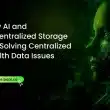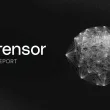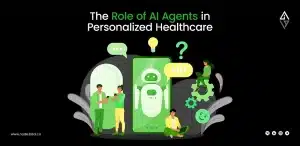Quick Links
Introduction
Imagine a future where your health is always in the best hands — where subtle changes in your well-being are detected before they become major issues, and personalized wellness advice is just a notification away. This future isn’t far off, it’s being realized today through the innovative use of AI agents in healthcare.
This blog explores the concept of AI agents, their transformative role in revamping the healthcare space, and how they deliver smarter, personalized, and more efficient solutions.
What are AI Agents?
AI agents are autonomous software programs capable of perceiving their environment, collecting and processing complex data, and making decisions to achieve specific goals. Humans set these goals to guide their functionality. AI agents independently determine the best actions needed to fulfill them.
In healthcare, they act as dynamic assistants that analyze bio-signals, provide recommendations, and execute tailored actions to enhance health outcomes. Unlike traditional systems, these agents are adaptive and continuously learn from data, enabling nuanced and personalized interventions. For example, imagine an AI agent that assists patients by asking questions about their symptoms, analyzing medical data, and suggesting possible treatments or next steps. If the issue is too complex, the AI knows when to refer the patient to a doctor for further care.
Why Do AI Agents Matter in Healthcare?
Healthcare is deeply personal, and AI agents amplify this by delivering tailored solutions that address individual needs. Their impact can be seen in varied fields such as:
- Proactive health management: AI agents identify potential health issues early, enabling timely interventions. For example, they can flag irregular heart rhythms or suggest adjustments in activity levels to prevent potential health concerns.
- Personalized recommendations: By analyzing unique patterns and lifestyle data, AI agents provide guidance customized to individual health profiles. For example, they may suggest increasing physical activity after identifying prolonged inactivity through bio-signal analysis or recommend adjusting sleep habits based on recent disruptions in sleep cycles.
- Data Privacy and Ownership: In a decentralized healthcare ecosystem, AI agents ensure sensitive health data remains secure and under the user’s control. Data can be stored on a preferred network for better availability and access. At BrainAlive AI, we use decentralized infrastructure to guarantee secure data handling and sharing, empowering users with control over their health information and even the ability to monetize it if desired.
- Operational efficiency: Automating administrative tasks like appointment scheduling and data entry saves time and reduces errors. Advanced reports such as Heart Rate Variability (HRV), Heart Rate Drop (HR Drop), Peripheral Oxygen Saturation (SpO2), Sleep Cycle, Stress Levels, and Calories Burned are automated, offering hours of real-time data that aid in diagnoses and provide insights beyond conventional medical reports.
For example, imagine receiving a morning notification: “Your bio-signals indicate lower recovery levels. Consider taking it easy today or addressing a misalignment in your sleep recovery index.” These precise, empathetic insights transform abstract data into meaningful actions, bridging the gap between understanding health metrics and applying them effectively.
A Breakdown of How AI Agents Work
The functionality of AI agents in healthcare is underpinned by a structured yet adaptable process, comprising four critical stages:
- Perception and Data Collection: Smart wearables, such as BAAI’s Smart Rings, continuously collect bio-signals, including Heart Rate Variability (HRV), Peripheral Oxygen Saturation (SpO2), and stress insights linked to Sympathetic Nervous System (SNS) activation markers. These wearable devices are also integrated with decentralized data systems to ensure secure and seamless data acquisition from diverse sources.
- Analysis and Pattern Recognition: Advanced algorithms powered by machine learning analyze the collected data to identify meaningful patterns and anomalies. For instance, HRV trends might reveal stress levels, while SpO2 fluctuations could indicate respiratory concerns. This step transforms raw data into actionable insights by contextualizing it within a broader health framework.
- Decision-making and action: Based on the insights derived, AI agents generate precise recommendations or initiate actions. For example, they can predict a high risk of chronic conditions like metabolic disorders or Heart Arrhythmia by analyzing patient data and suggesting preventive measures such as lifestyle changes or early screenings. They can also propose stress management techniques during high-pressure scenarios or alert healthcare providers to critical health abnormalities in real-time
- Learning and Adaptation: Leveraging continuous feedback loops and additional datasets, AI agents refine their models to deliver increasingly accurate and personalized recommendations over time. This ensures that the system evolves alongside the user’s changing health needs.
Use Cases in Healthcare and Wellness
AI agents are enabling applications that were once considered futuristic. Below are detailed examples of their versatility and the real-world impact:
Remote Health Monitoring: AI agents, integrated with smart wearables, monitor metrics such as sleep quality, stress levels, and physical activity. These wearables collect bio-signals in real-time, enabling timely interventions when necessary.
Example: AI-powered remote monitoring systems can detect the early signs of a Heart arrhythmia by analyzing changes in Heart Rate Variability (HRV). This proactive approach can significantly improve survival rates, reduce hospital readmissions, and enhance cardiovascular health.
Preventive Care: By analyzing lifestyle data, such as sleep patterns, activity levels, and step counts, AI agents predict health risks and recommend preventive measures if any. This personalized approach and timely interventions empower users to adopt healthier habits before issues escalate.
Example: AI predictive analytics systems like those used at Johns Hopkins Hospital analyze patient data to identify individuals at high risk for chronic diseases such as diabetes or cardiovascular conditions. These systems recommend lifestyle changes or early screenings to prevent disease progression, significantly lowering healthcare costs and improving patient outcomes
Mental Health Support: AI agents excel at identifying mental health challenges by analyzing emotional responses and stress patterns through bio-signals. They provide timely interventions to help users manage mental well-being effectively.
Example: AI-driven mental health platforms use natural language processing (NLP) to detect signs of depression or anxiety through user interactions. For example, chatbots powered by AI can monitor mood patterns and recommend therapy sessions or mindfulness exercises. These tools improve accessibility to mental health support while reducing stigma.
Clinical Research: AI agents combined with decentralized data networks enable large-scale studies while preserving participant privacy. By aggregating de-identified bio-signals from thousands of users, researchers can uncover valuable insights without compromising data security.
Example: IBM Watson Health has collaborated with Mayo Clinic to use AI for personalized medicine research. By analyzing genetic profiles, medical histories, and treatment outcomes, Watson helps identify optimal treatment strategies for cancer patients while accelerating clinical trial recruitment.
BrainAlive AI’s Health Nodes: Redefining the Future of Wellness
In an era where healthcare is evolving at a breakneck speed, BrainAlive AI (BAAI) Health Nodes represent an innovative leap in decentralizing health data management. These nodes empower individuals to take control of their health while ensuring privacy and accessibility.
By combining technology with a human-centric perspective, BAAI Health Nodes are redefining how we interact with and understand our health.
Here’s what sets BAAI Health Nodes apart:
- Multi-Modality Analytics: BAAI Health Nodes integrates diverse data streams, including vision, speech, and bio-signals, to generate holistic real-time health insights. This capability provides a more comprehensive understanding of an individual’s wellness.
- Decentralized and Privacy-First: Powered by blockchain infrastructure, BAAI Health Nodes securely store data while empowering users with self-sovereignty over their health information. Unlike traditional systems where health data is stored on centralized servers, BAAI ensures that individuals decide how, when, and with whom their data is shared.
- Rewards for Engagement: Users who share validated health data through BAAI’s ecosystem are rewarded with tokens, creating a value-driven health management model.
- Comprehensive Health Tracking: Linked to Smart Rings and other wearables, BAAI Health Nodes provide detailed insights into personal health metrics and trends, helping users to make informed decisions.
Why does BAAI stand out?
BrainAlive AI (BAAI) distinguishes itself in the healthcare and wellness industry through its innovative, patient-centric approach and technology. Here are the key aspects that set BAAI apart:
Privacy-First Design
BAAI prioritizes user privacy by leveraging decentralized infrastructure to ensure that health data remains secure and under the user’s control. Unlike traditional centralized systems prone to breaches, BAAI empowers individuals to decide how, when, and with whom their data is shared.
Seamless Integration
BAAI Health Nodes integrate effortlessly with smart wearables like smart rings, enabling real-time bio-signal monitoring without disrupting users’ daily lives. This seamless connectivity ensures that users can access actionable health insights without additional complexity.
Continuous Real-Time Monitoring
With advanced real-time tracking capabilities, BAAI provides instant feedback on key health metrics such as HRV, stress levels, sleep cycles, and more. This continuous monitoring allows for timely interventions, bridging the gap between health awareness and meaningful action.
Ethical Innovation
BAAI adopts a human-centric approach to innovation by focusing on ethical data usage and transparency. Users not only retain ownership of their data but are also rewarded for sharing validated health information, creating a mutually beneficial ecosystem.
Scalable Impact
The decentralized architecture of BAAI Health Nodes supports scalability across diverse industries, from personal wellness to clinical research and beyond. By aggregating secure, de-identified data from multiple sources, BAAI supports breakthroughs in healthcare while maintaining high standards of privacy and security.
User-Centric Approach
BAAI focuses on empowering individuals by providing them with tools to actively manage their health. The system offers personalized recommendations based on bio-signal analysis, ensuring interventions are tailored to each user’s unique needs.
Rewards for Engagement
Users wearing BAAI-powered devices act as node operators and are rewarded with tokens for contributing validated health data. This innovative model turns data sharing into a collaborative process, promoting a healthier, more connected community.
Closing Thought
As the healthcare sector continues to evolve, the integration of AI agents and decentralized technology marks the dawn of a new era where personalization, privacy, and proactive care become imperative. BrainAlive AI’s Health Nodes exemplify this transformation, empowering individuals to not only monitor but also take charge of their health like never before.
The future of healthcare is here, offering smarter solutions, deeper insights, and a more connected approach to wellness. By embracing innovations like AI-driven health ecosystems, we can move toward a world where optimal health is not just an aspiration but a reality within reach for all.
Take charge of your health today! Discover how BrainAlive AI is redefining healthcare and wellness with cutting-edge technology, real-time insights, and a privacy-first approach. Learn More Here
Take charge of your health today! Discover how BrainAlive AI is redefining healthcare and wellness with cutting-edge technology, real-time insights, and a privacy-first approach. Learn More Here









